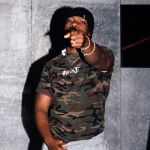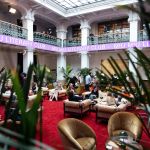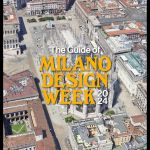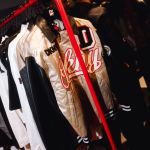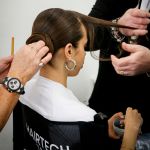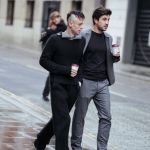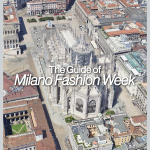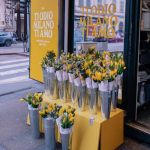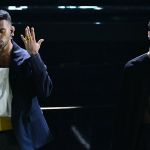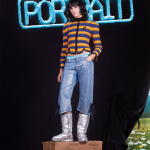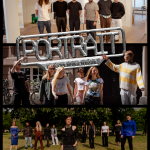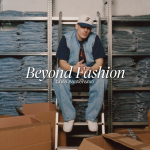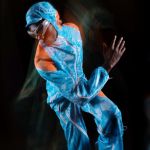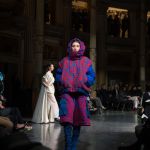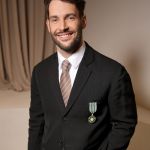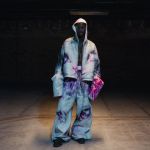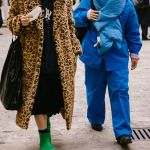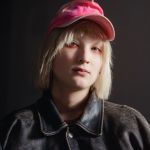
The New Milanese Underground: Rayon Vert
How a brand born among mountain-loving friends challenges production systems and the relationship between public and fashion
Sustainability has become the unicorn of the fashion industry: everyone talks about it, everyone chases it but reaching it still seems like a fantasy and there is still a clear trade-off between the profitability of a product and compliance with ethical standards at the production and sales level. This is a blatant inconsistency that has its roots in the contemporary production and consumption model, in which products are replaceable and not very long-lasting and the purchase is stimulated by infinite factors that nourish the same relationship between user and brand. Among the rare realities that have the courage to imagine a different future is Rayon Vert International, a research brand founded in Milan in 2017 and run by Yuri Kaban and Andrea Ferrari, two friends united by a passion for travel and the mountains.
The goal of this brand is to produce clothes and technical accessories defined by a gorpcore-urban aesthetic, following a different, liquid and light model, that of Open Manufacture. Described by Martijn Van Strien and Vera De Pont in the Open Source Fashion Manifesto of 2016, this production model seeks to include the final consumer in the design and realization of the product, making him learn the production process and the use of materials and at the same time subverting the classic capitalist production line, where it is often the workforce and materials used to create the marginality for profit.
This new model of sustainable production, together with the relationship between fashion and the underground world in Milan were the topics of the exclusive interview that one of Rayon Vert's founders, Yuri Kaban, discussed with nss magazine.
How was Rayon Vert born? Who are you and what were you inspired by?
Rayon Vert was born to two friends who needed to have clothes and technical clothing that would meet their tastes, both aesthetic and technical. From that first wish everything was questioned and evolved over the years as well as the people who took part in the project. The fundamental turning point was the meeting with ultralight backpacking and Pietro Fareri's research related to Open Manufacture that directed the brand in the direction it is now going in.
Rayon Vert offers a completely different production and consumption model from the one that dominates contemporary industry. What are its mechanisms?
We believe in the pursuit of a condition in which everyone is able to produce their own clothing and accessories - a model that would make low-quality production lines obsolete by supporting self-handling and local businesses; establish a greater connection between users, their clothing and equipment by encouraging them to repair and re-use them whenever possible; transmit the knowledge necessary to users to expand the design of the item according to their needs and, above all, reduce the environmental impact of mass production.
The fastest way to get to such a solution is to try as hard as possible to break down the wall of apparent difficulty that sewing seems to have. After that the only thing you need is a sewing machine and detailed instructions on how to make everything as simple as possible.
Why do you think we have reached such a deep gap in fashion between production and the final consumer? It can't just be technology, basically we cook at home even if technology allows us not to. What happened differently with fashion?
That's a tough question. I think that the substantial difference between food and clothing is that the former has to do with our intimacy, that we live in our apartments, with the people with whom we choose to share it. The second is our outer shell that can be judged by anyone we cross on the street or online, and that consequently makes us feel more or less safe. Maybe that's why, if when we're alone, we allow ourselves to skip meals or eat poor food, we hardly leave the house with clothes we don't like. I think it's easier to wear clothes that meet more or less collectively shared standards than something we've done, and maybe even a little crooked, but that makes us vulnerable to judgment.
Do you consider yourself an underground or countercultural reality?
We consider ourselves underground for our current low catchment area. We are a small reality and our channels and communication methods do not have great capillarity. In addition, the fact that the production of our products and content is fully managed by us makes it more difficult to emerge from our market niche. We do not feel countercultural in the sense that we believe that our communication and production choices are the most ethically right in 2020, it seems rather countercultural not to take a position in the face of problems that are currently at the center of ecological and human discourse.
The discourse on sustainability and circular fashion has become the chimera of big brands today, however how can an emerging brand be inclusive - at the price level - and sustainable at the same time?
We believe that a brand can safely generate revenue even without necessarily having to sell its physical products. There are many ways, from consultancy to collaborations with other realities or through the teaching and transmission of know-how. The product, in the fashion and design field, even in the past has always been the result of marketing and structured work, never just the product for its own good. So we spontaneously think that it is not essential to the development of a brand.
What role has Milan played in the development of RV and how do you imagine the city in the next 10 years?
Rayon Vert's team is 90% Milanese, curiously all born and raised in the East/Northeast part of the city. We think that somehow this has contributed. However, it was not a designed choice but more of a spontaneous process that turned friendships, in some cases decades, into working relationships. How do we imagine the city in the next few years? Worse. In recent years the process of gentrification and corporateization of municipal bodies has created a city in which living makes sense only for those who have a lot of money to spend or for tourists. Recent administrative choices have not in any way protected those who live in the city and cannot cope with the soaring prices of rents and basic necessities.
Aesthetically the fashion industry has cannibalized many subcultures, today gorpcore and hiking aesthetics are going through their moment. How does Rayon Vert experience this kind of relationship since he proposes to be a purely technical brand?
We decided to work in the field of technical clothing because it is what amuses us and we find there is a greater challenge from a design point of view. Entering this world from initial users to actual producers became spontaneous the moment we started practicing outdoor activities in a more or less serial way.
That now technical clothing has its moment in the spotlight is indisputable, but we believe that in the last twenty years it has crept in in a rather stable and now indispensable way, even for a few SKUs, even for materials only, in every brand and at every price level.
You recently partnered with IUTER for a workshop: what are the plans for the near future?
Our collaboration with Iuter, of which we are very satisfied, was a bit of a test of what we would like to continue to do in the future, implementing techniques, products, machinery and the number of participants. Iuter has made its company available with its machinery and its employees and 16 guests who, although they have never sewed, have used the space to create their own backpack. If the evolution of the lockdown allows, we would like to try to expand this kind of project as much as possible, trying to get to as many people as possible. Of course, physical space is limited to a narrow geographical area of action. We are trying, and this is the main focus for the future, to also digitally extend what are our objectives.
















